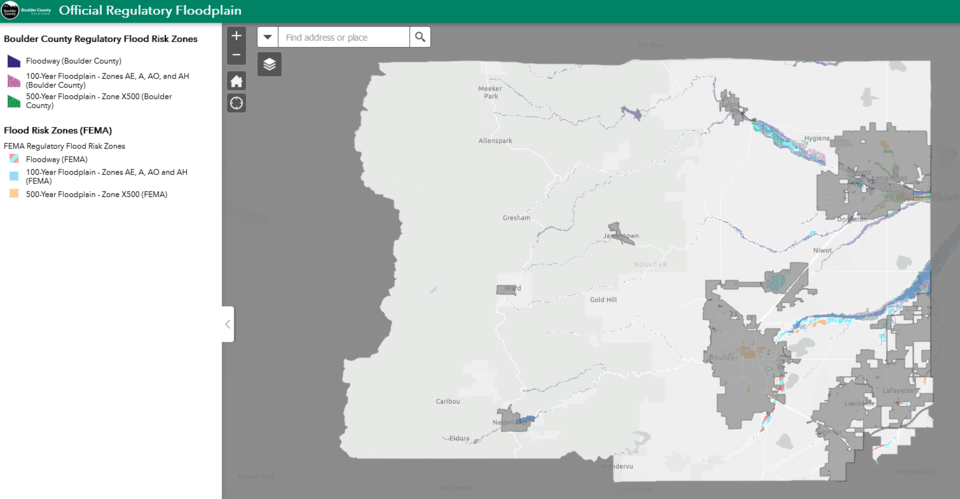Boulder County plans to update its floodplain regulations in the Land Use Code.
The changes being considered are meant to align county policy with new policies from the Federal Emergency Management Agency and the Mile High Flood District, along with clarifying a few areas. Kelly Watson, principal floodplain planner, emphasized during a public meeting on Thursday that the flood plain maps would not be changing with these updates.
These changes also only apply to unincorporated areas of Boulder County and to new or substantially improved or damaged buildings, so existing buildings do not have to comply.
For the county to align with FEMA standards and continue qualifying for the National Flood Insurance Program, the county needs to update its standards for agricultural structures. Currently, ag structures can be in a floodplain at grade as long as it is wet flood-proofed, meaning it has vents that allow for the passage of water in event of a flood.
FEMA no longer allows this, so once approved, agricultural buildings will need to be elevated or dry flood-proofed. Wet flood-proofing may be allowed via an administrative variance process if there is low damage potential from the building.
The other change relates to occupancy in floodplains and comes from the Mile High Flood District, a regional district that covers the Denver Metro area including the southwest corner of Boulder County. A new regulation from this district prohibits camping and makeshift structures anywhere in a floodplain.
In Boulder County, camping is already prohibited in floodways — the area reserved for water passage in a 100 year flood. The area outside of that that is still part of the floodplain is called the flood fringe, where camping has been permitted by the county.
This change would prohibit camping in the flood fringe as well, but Watson emphasized that this is only a small area of the county. She added that the county sees this as an opportunity to educate the public about the dangers of camping in floodplain areas, rather than enforcing the regulation in a punitive way.
A few clarifications will also come with the update, including making it clearer when site plan reviews could be waived, letting manufactured homes in a floodplain be evaluated on a case by case basis and allowing emergency work to begin in a floodplain without a permit — though the work must eventually be permitted.
The county is accepting comments on the proposed text through the end of February before it is taken up at the March meeting of the Boulder County planning commission. Pending a recommendation, the change will be presented at a public meeting to the Board of County Commissioners.



